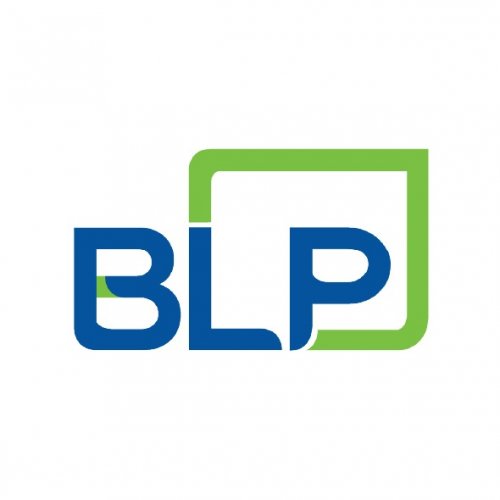Best Financial Services Regulation Lawyers in Nicaragua
Share your needs with us, get contacted by law firms.
Free. Takes 2 min.
Or refine your search by selecting a city:
List of the best lawyers in Nicaragua
About Financial Services Regulation Law in Nicaragua
Nicaragua's financial services regulation is a comprehensive framework designed to oversee the institutions that provide financial services, such as banks, insurance companies, and investment funds. The regulatory system is primarily governed by the Superintendency of Banks and Other Financial Institutions (Superintendencia de Bancos y de Otras Instituciones Financieras, SIBOIF), which ensures financial stability, market integrity, and consumer protection. The legal framework encompasses a range of aspects, including licensing, capital adequacy, anti-money laundering, consumer rights, and compliance monitoring.
Why You May Need a Lawyer
Engaging a lawyer experienced in financial services regulation may be necessary in a variety of circumstances. If you are establishing a financial service institution, a lawyer can help navigate the complex licensing and regulatory requirements. Individuals or entities facing compliance issues or allegations of regulatory breaches will benefit from legal expertise in defending or mitigating claims. Additionally, those involved in mergers, acquisitions, or other financial transactions may require legal advice to ensure all regulatory aspects are properly addressed. Consumers needing assistance with claims against financial institutions or deciphering complex financial products might also seek legal guidance.
Local Laws Overview
Nicaragua's financial services regulation is influenced by international standards, such as those of the Basel Committee. Key aspects include strict licensing processes for financial institutions, which must meet capital adequacy and liquidity requirements. Furthermore, there are comprehensive guidelines for anti-money laundering (AML) and combating the financing of terrorism (CFT) that financial services must adhere to. Consumer protection laws require financial institutions to disclose terms clearly and provide adequate dispute resolution mechanisms. Non-compliance can lead to severe penalties, including fines and revocation of licenses.
Frequently Asked Questions
1. What is the role of the SIBOIF in Nicaragua?
The SIBOIF is the main regulatory body overseeing the financial services industry in Nicaragua. It ensures stability, compliance, and consumer protection by monitoring financial institutions and enforcing regulations.
2. Do banks in Nicaragua follow international standards?
Yes, Nicaraguan banks are required to follow international standards, including those set by the Basel Committee, to ensure best practices in risk management and capital adequacy.
3. What is required to obtain a banking license in Nicaragua?
Obtaining a banking license involves meeting capital requirements, demonstrating sound corporate governance, and successfully passing regulatory assessments by the SIBOIF.
4. How are consumer rights protected under Nicaraguan financial regulation?
Nicaraguan law mandates financial institutions to provide clear information about their products, offer fair terms, and provide adequate resolution mechanisms for consumer complaints.
5. What are the penalties for non-compliance with financial regulations?
Penalties for non-compliance can include fines, suspension, and even revocation of operational licenses for financial institutions.
6. Are there specific regulations for anti-money laundering in Nicaragua?
Yes, Nicaragua has specific laws aimed at preventing money laundering and financing of terrorism, requiring institutions to implement thorough customer due diligence and reporting procedures.
7. Can foreign banks operate in Nicaragua?
Foreign banks can operate in Nicaragua, but they must comply with local laws, including obtaining a license from SIBOIF and adhering to the same regulations as domestic banks.
8. What is the process for resolving disputes with financial institutions?
Consumers can address disputes directly with the institution, utilize in-house resolution services, or escalate the matter to the SIBOIF if necessary.
9. How are insurance companies regulated in Nicaragua?
Insurance companies are regulated under similar frameworks as banks, with requirements for licensing, financial stability, and consumer protection to ensure industry integrity.
10. Are there special considerations for fintech companies?
While not as comprehensive as traditional banking regulations, fintech companies are subject to oversight, particularly concerning AML/CFT, data protection, and payment services regulation.
Additional Resources
For further assistance, individuals can refer to the Superintendency of Banks and Other Financial Institutions (SIBOIF), Nicaraguan Central Bank (Banco Central de Nicaragua), and consumer protection agencies. Consulting with local law firms that specialize in financial services regulation can also provide valuable insight and assistance.
Next Steps
If you require legal assistance, consider consulting with a lawyer specialized in financial services regulation in Nicaragua. Prepare all related documentation and details of your situation to facilitate an efficient consultation. Lawyers can guide you through compliance issues, represent you in legal disputes, and help navigate the regulatory landscape. Establishing a preliminary consultation will help clarify the scope of assistance needed and potentially secure a longer-term legal advisor suited to your financial regulatory needs.
Lawzana helps you find the best lawyers and law firms in Nicaragua through a curated and pre-screened list of qualified legal professionals. Our platform offers rankings and detailed profiles of attorneys and law firms, allowing you to compare based on practice areas, including Financial Services Regulation, experience, and client feedback.
Each profile includes a description of the firm's areas of practice, client reviews, team members and partners, year of establishment, spoken languages, office locations, contact information, social media presence, and any published articles or resources. Most firms on our platform speak English and are experienced in both local and international legal matters.
Get a quote from top-rated law firms in Nicaragua — quickly, securely, and without unnecessary hassle.
Disclaimer:
The information provided on this page is for general informational purposes only and does not constitute legal advice. While we strive to ensure the accuracy and relevance of the content, legal information may change over time, and interpretations of the law can vary. You should always consult with a qualified legal professional for advice specific to your situation.
We disclaim all liability for actions taken or not taken based on the content of this page. If you believe any information is incorrect or outdated, please contact us, and we will review and update it where appropriate.
Browse financial services regulation law firms by city in Nicaragua
Refine your search by selecting a city.









